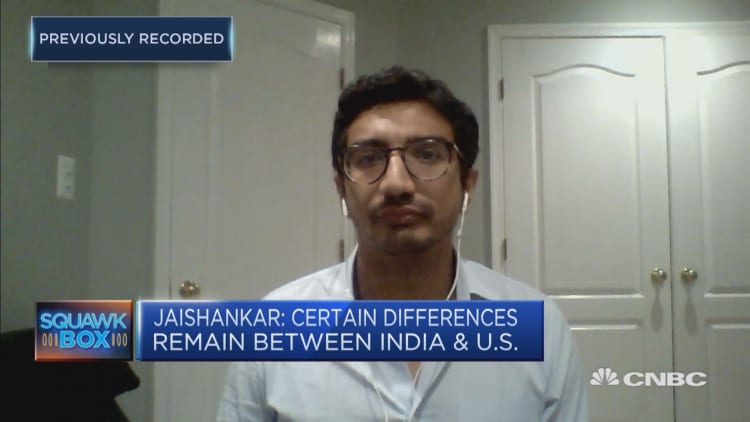
The rise of Chinese influence, sanctions on Iranian oil and India's plan to build a deep water port in Afghanistan were likely some of the major geopolitical concerns addressed during the ministerial meeting on Thursday between India and the United States, experts told CNBC.
The "2+2" ministerial dialogue featuring Defense Secretary James Mattis and Secretary of State Mike Pompeo and their Indian counterparts were held in New Delhi this week to forge political and military ties between both nations.
The series of meetings between Indian and American officials was an important step for the strategic dialogue between the United States and India, said Dhruva Jaishankar, a fellow in foreign policy studies at Delhi-based research center Brookings India.
"The very fact that it is taking place is one of the most significant aspects of all of this," he added.
On Thursday India and the United States signed an accord on secure military communications that both sides hailed as a breakthrough. Pompeo said the agreement was a "major step" forward that officials have previously said would allow the U.S. to transfer high-tech equipment such as armed surveillance drones. New Delhi has been seeking the drones to monitor the Indian Ocean where China, a close ally of Pakistan, has been making repeated forays in recent years.
While China's increasing influence in the region is not the only concern likely raised at the talks, it does play a significant role in bringing the U.S. and India together on security matters said Jaishankar.
India might push for American political assistance for it to be a viable alternative to host infrastructure projects, as China has in Sri Lanka, Myanmar and East Africa, he explained.
Another issue of strategic importance to the world's two largest democracies is the deep water port that India plans to build in Afghanistan.
"That port is important because it provides India's overland access into Afghanistan and that is important because India is Afghanistan's fifth-largest bilateral donor and a very, very important development economic assistance partner. President Trump asked India to do more in Afghanistan on economic assistance as a part of his South Asia strategy," said Alyssa Ayres, senior fellow for India, Pakistan, and South Asia at the Council on Foreign Relations, a U.S.-based think tank.
"I'm very bullish on U.S.-India ties. This is the one bilateral relationship that has broad bipartisan consensus in the United States as well as in India. I think that the trajectory is positive," she added.
—Reuters contributed to this report.

